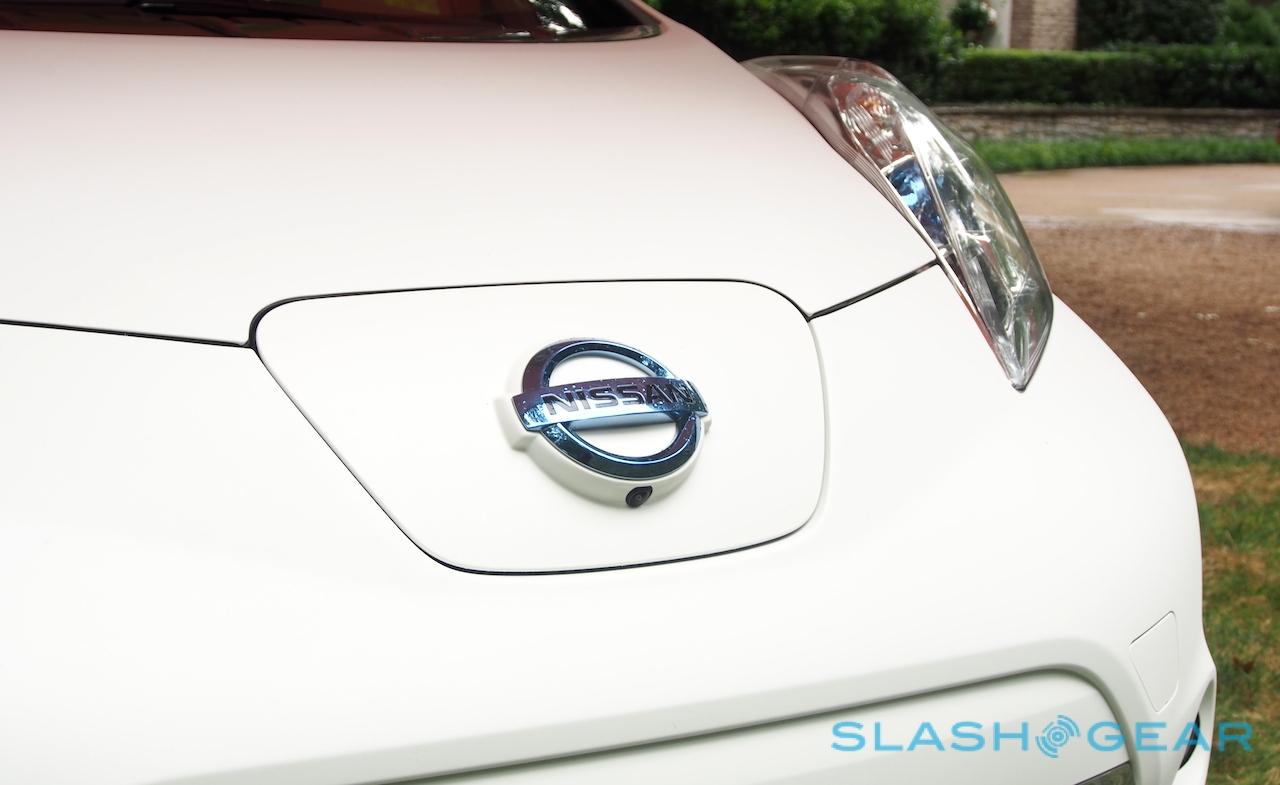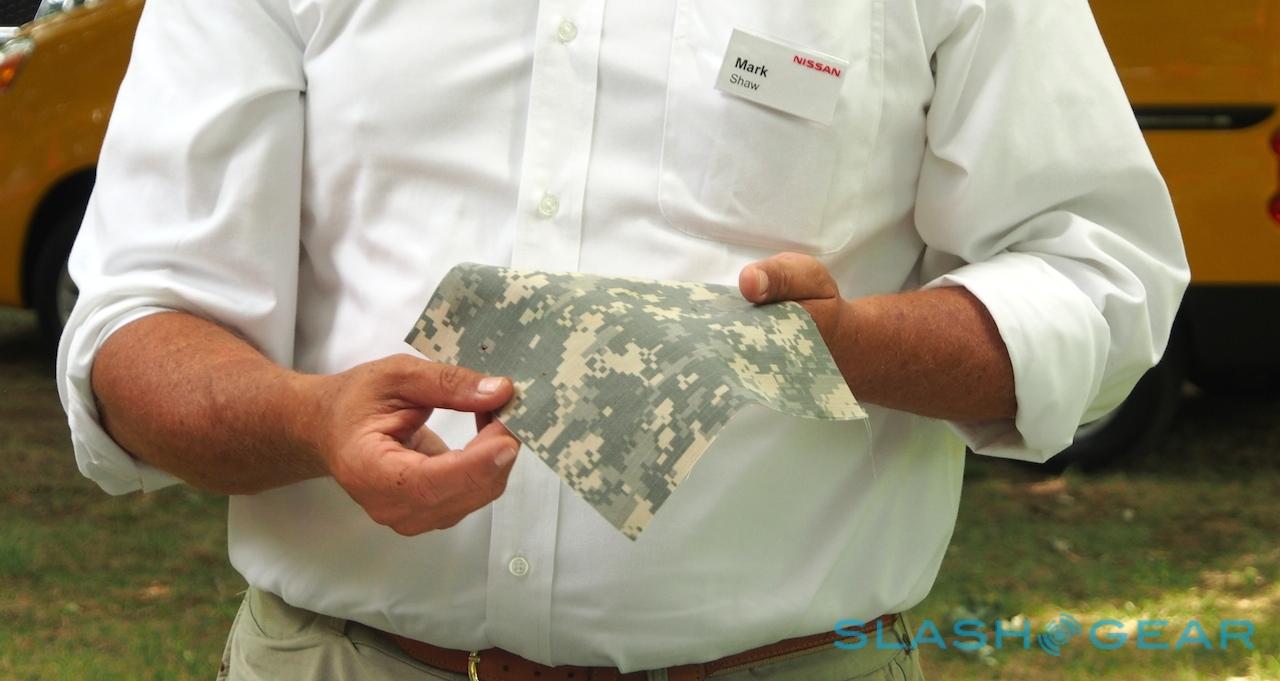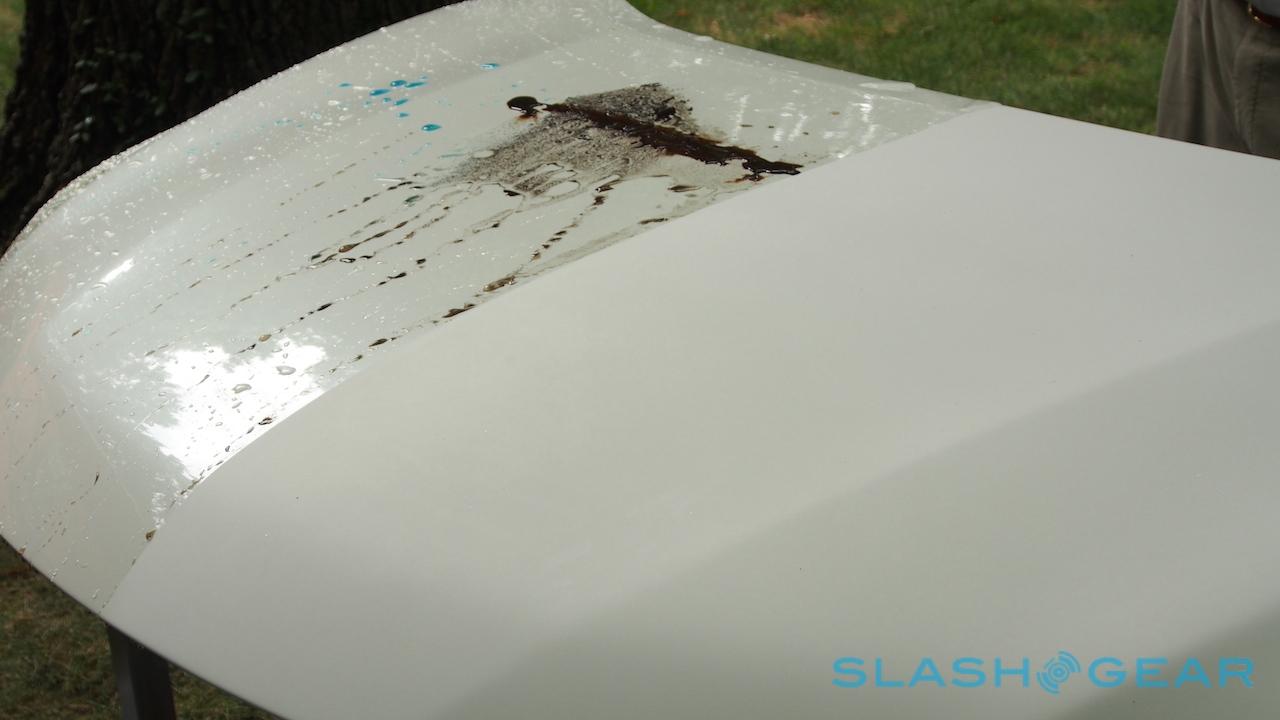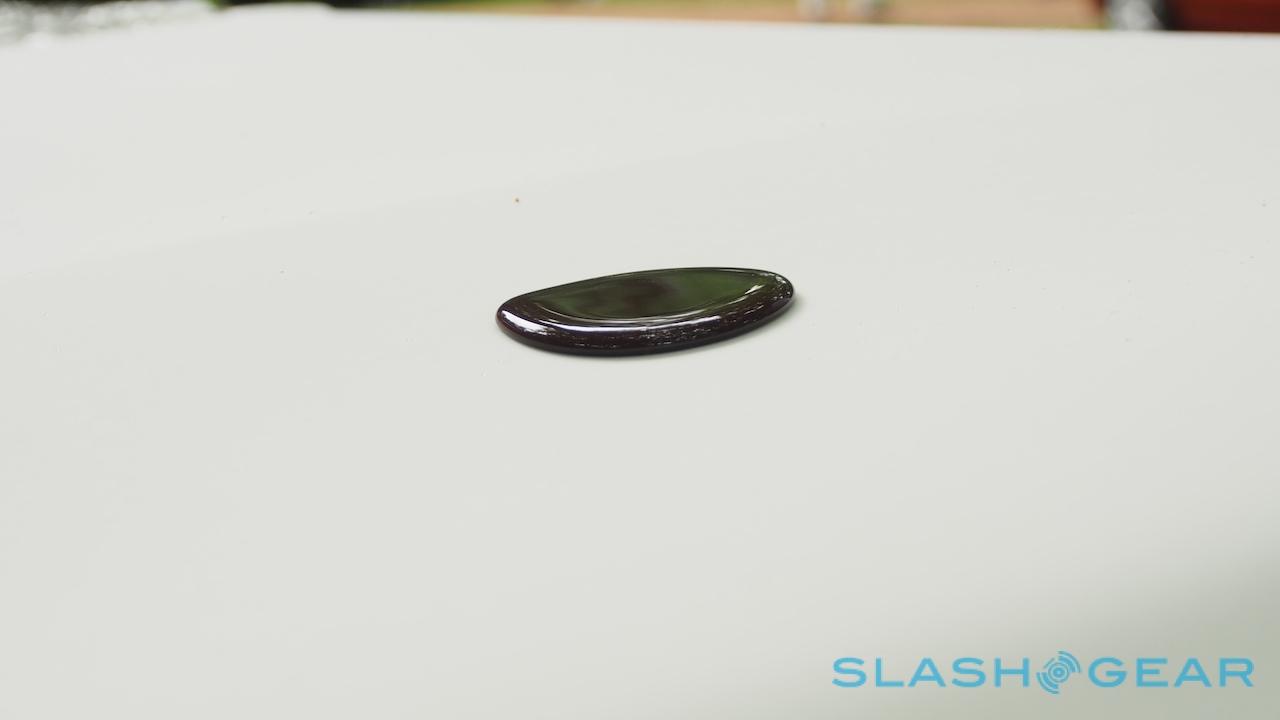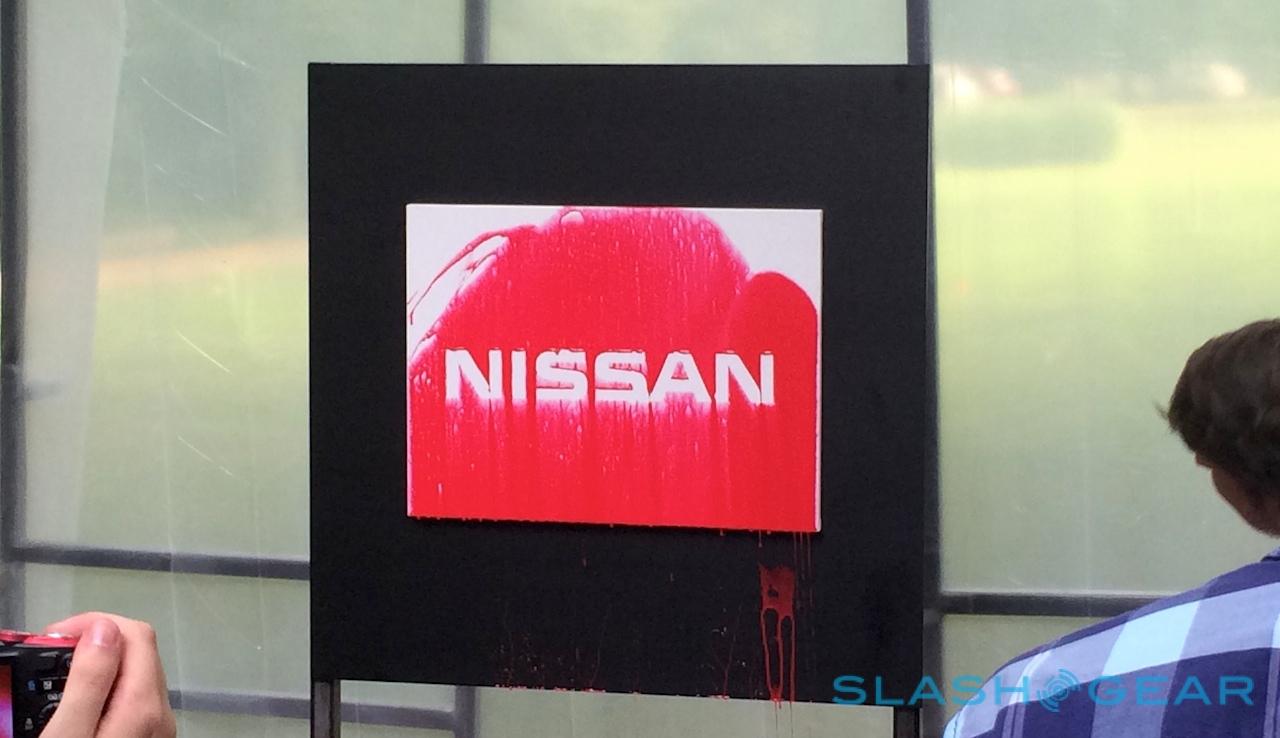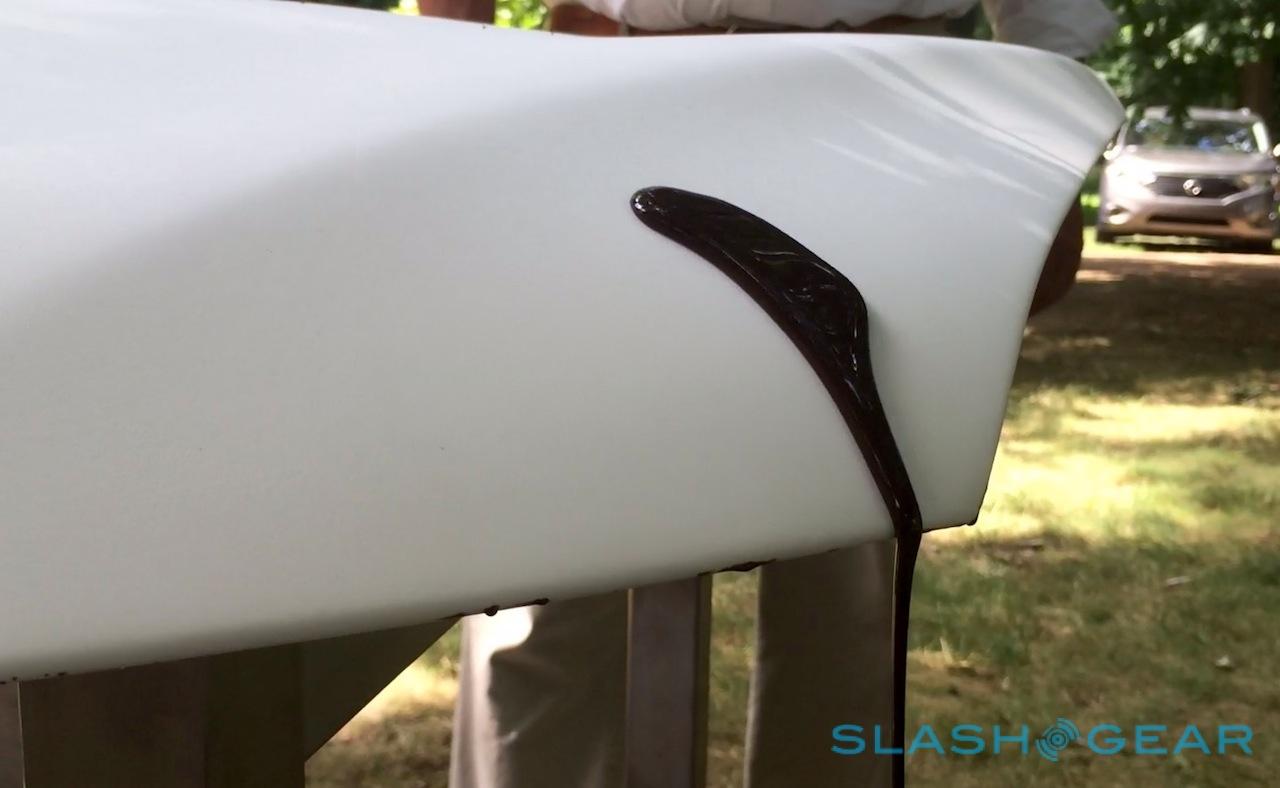This Self-Cleaning Car Tech Could Change Everything
Rich chocolate syrup on a pure white car would usually be the trigger for a trip to the detailing shop, but this time around there's something different: like the black oil from the X-Files, the syrup beads up and oozes off the edge of the hood, leaving no trace that it was ever there. Nissan's calling it "the World's Cleanest Car," but there's more to this special Leaf EV than a fetching matte paint-job.
The matte finish is because as soon as this particular Leaf left Nissan's production line, it was whisked off to UltraTech International and given a new treatment that makes it super-slippery for dirt. Run your hand down the side of the bodywork and it feels textured, but splash it with muddy water or, yes, chocolate syrup, and the mess just rolls off.
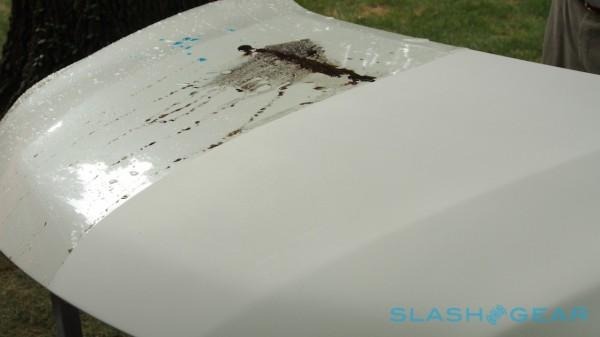
It's called Ultra-Ever Dry, and according to UltraTech CEO Mark Shaw it's all about taking car companies' usual obsession with slipperiness and taking it down to the microscopic level. The treatment – applied in the Leaf's case straight on top of the standard paintwork – leaves the surface micro-textured. When dirt lands, a sandwich of air is created between it and the bodywork, on which it simply skids away.
Shaw had a second Leaf hood only half-treated to demonstrate the difference, the standard paint left smeared and messy while the other section refused to get dirty. There's something mesmerizing about watching water unexpectedly bead almost like it's just floating; that beading can also pick up dust and other particulates and carry them off too, meaning not only does this particular Leaf shed dirt, it actively cleans itself.
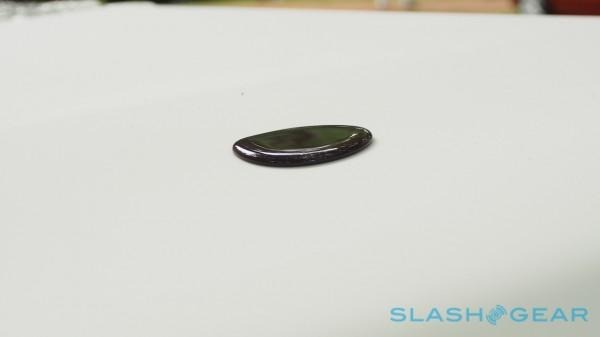
In fact, you might already be driving a car with some of the nano-technology applied. Versions of the paint have been used by some SUV and truck manufacturers to coat the underbody and wheel wells, allowing them to shed mud and grime rather than let it build up into a tough crust.
The problem with using Ultra-Ever Dry on more visible parts of the car is long-term stability. In its current formulation on the Leaf, the paint's special features are degraded by ultra-violet light from the sun; according to Shaw, the expectation for the current paint-job is that it could last for around a year with regular exposure to light.
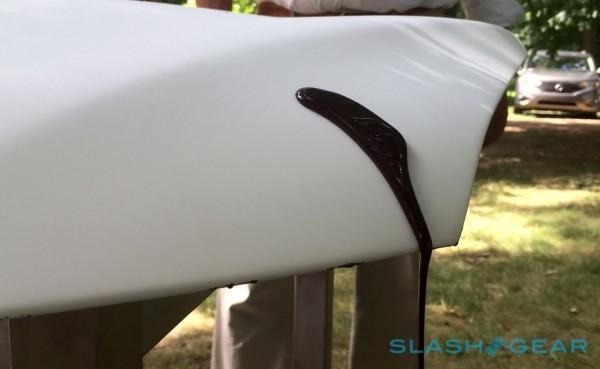
However, UltraTech has a new version currently in testing and believes it will be significantly more resilient. The firm's ambitions aren't limited to the outside, either, with plans to use impregnated fabrics – already picked up by the US army for future uniforms – for car seats and carpets, and even in the air filters to clean particulates like pollen and gas fumes before they make it into the cabin.
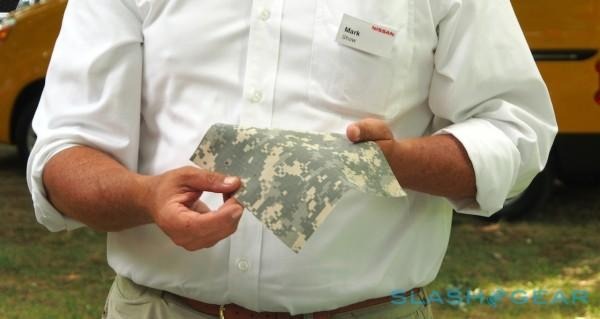
The goal is to be able to offer Ultra-Ever Dry as an aftermarket option on any vehicle; Nissan isn't talking about any possibility of adding it to its own options list, and right now discussions between the two companies are in the very early stages. Shaw expects the treatment to cost $2-3 per foot, though it'll need to be professionally applied due to the nature of the chemicals involved. Since it doesn't dry clear, it's only really suited to lighter cars, like white or silver, too, and you can't use it on a windshield or side glass.
Still, it's not hard to see why its caught the eye of car companies, and Shaw says that as well as Nissan, there's some early chatter with Ford and others about the potential of the nano-tech treatment.

